Mississippi Native: J. Janice Coleman
"[A]mong other identities, I’m a seamstress or quilter, a storyteller, and a born archivist. I think there is literally something in the soil that has shaped me into all the beings that I am."
What does it mean to call Mississippi home? Why do people choose to leave or live in this weird, wonderful, and sometimes infuriating place? Dr. J. Janice Coleman is a professor of English at Alcorn State University, but she credits her childhood in Mound Bayou as a source of inspiration for her textile arts, including quilted cotton sacks. J. Janice writes: “So many people denigrate the cotton sack, especially African Americans who were formerly sharecroppers; they speak of it as an odious thing. But in my sewing, I elevate it to what John Keats had in mind when he said, ‘A thing of beauty is a joy forever.’” Today, J. Janice shares why she can’t imagine living any where other than Mississippi, and why she wants to tell Fannie Lou Hamer’s story from the mountain.

Where are you from?
I am from Mound Bayou, Mississippi, the “Jewel of the Delta.”
How long have you lived in Mississippi?
I have lived in Mississippi for nearly sixty years; that’s all my life except for the three years that I was either in school or working in Bowling Green, Ohio.
What does “home” mean to you? How does Mississippi fit into that definition?
To me, the sayings, “Home is where the heart is” and “there’s no place like home” are apt descriptions of home. Home is a place of familiarity; my home is a place where everybody knows my name, and I know theirs. It is a place of memory, a place where I can constantly tell or retell stories without having to provide much background information because everyone else already knows some parts of the same stories. Finally, home is a place of warmth, of warm and friendly people and warm and comforting weather. The weather, yes. On this sunny day in May, it will be ninety degrees. What the weather offers here in terms of pleasant conditions is largely how Mississippi fits into my definition of home.
Only by living here in Mississippi have I learned that this state can be a bit of a trickster. Mississippi tends to make some people, both residents and outsiders alike, think that she has little or nothing to offer.
How have you cultivated community in Mississippi? Who are the people who have made you feel rooted here?
I have cultivated community in Mississippi by being an integral part of it, that is, by using my time and talents to assist people in need. I have mended quilts, hemmed pants, ironed clothes, given pedicures, grocery-shopped, delivered prescriptions, donated to worthy causes, read children’s books, documented funerals, mopped floors, and mowed lawns.
Two people, mainly, have made me feel the most rooted in my community; unfortunately, both have passed on, but their gifts and wisdom continue to keep me grounded. One of these people is my mother, Bertha Mae Bradley Coleman. She died forty years ago, leaving me no material riches, but she left me with the gift of the needle, which has greatly enriched my life and from which many in my community have benefitted.
The other person who has kept me grounded is my former pastor, Reverend Ivory James of Shaw who died in 2009 at the age of 103. He taught me what it means to be dedicated to purpose. On Wednesday nights when no one showed up for Bible class, he was there at seven, waiting the entire hour before leaving a note such as the following on the church’s door: “The pastor was here from 6-7 o’clock. April 7, 2004. Your pastor, I. J. James.”
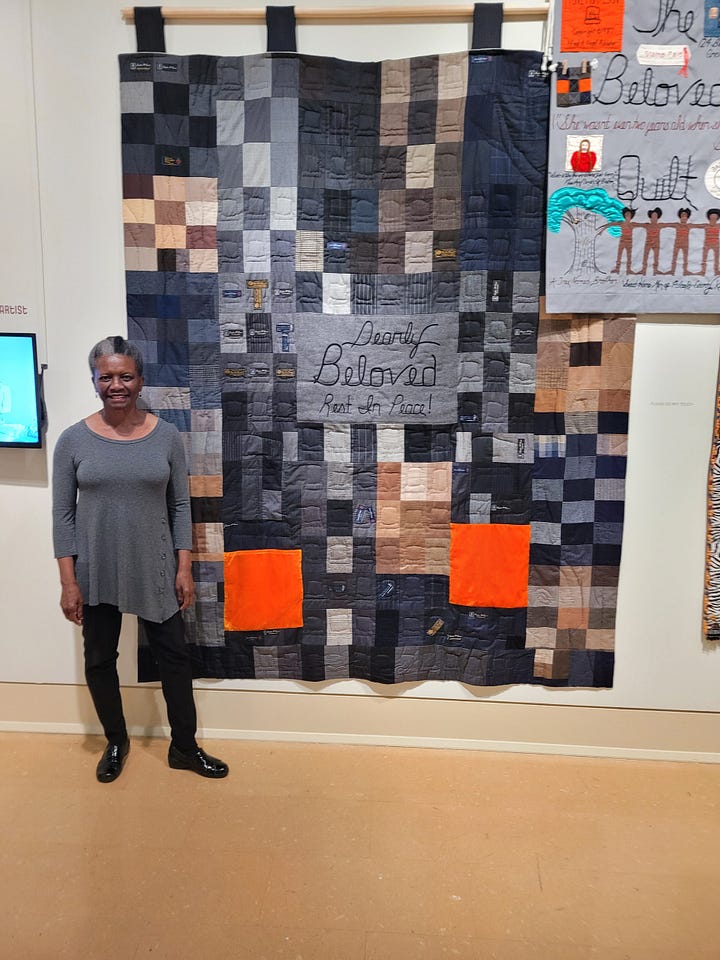
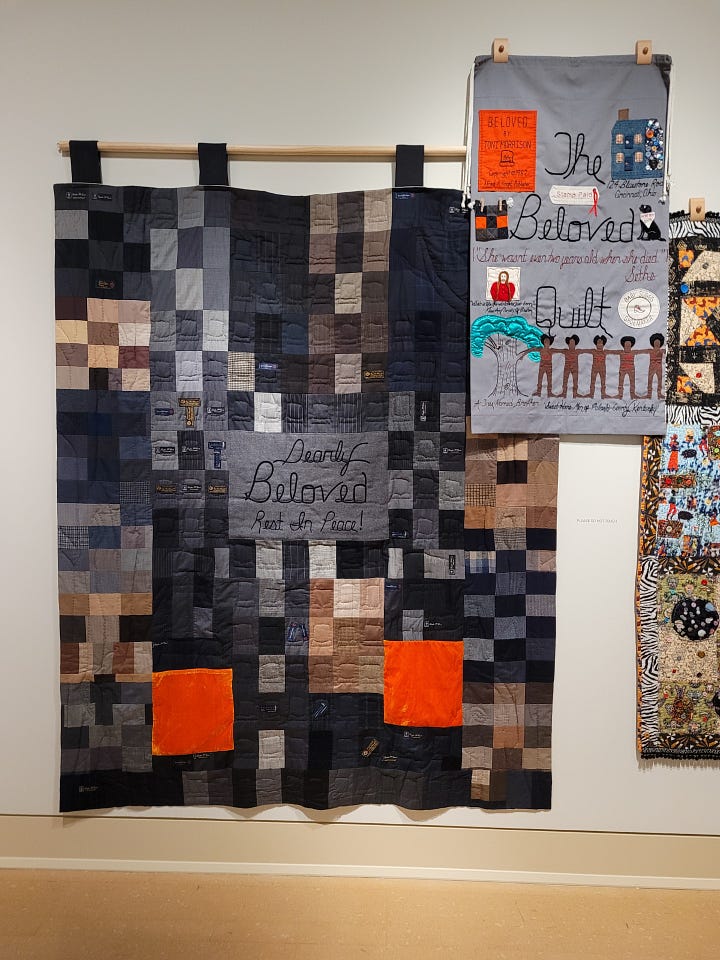
What’s the weirdest question or assumption you’ve encountered about Mississippi (or about you as a Mississippian) by someone who’s never been here?
The weirdest assumption about Mississippi that I have heard from someone who has never been to this state came from a resident of Wisconsin whom I met a few years ago at a national meeting of high school and college English teachers. When I told him that I was from Mississippi, he said, “I thought that everybody in Mississippi was fat,” to which I responded, “You’re about right. I’m the only slim person who lives there.”
I think there is literally something in the soil that has shaped me into all the beings that I am. After all, I grew up on the rich, fertile ground of the Mississippi Delta, and my various identities stem from my early childhood interests.
How has Mississippi affected your identity and your life’s path?
I am what I am because I grew up in Mississippi. Like most others, I come with multiple identities. People know me, first and foremost, as an English professor, or, as elderly people refer to me, as a schoolteacher, but among other identities, I’m a seamstress or quilter, a storyteller, and a born archivist. I think there is literally something in the soil that has shaped me into all the beings that I am. After all, I grew up on the rich, fertile ground of the Mississippi Delta, and my various identities stem from my early childhood interests.
What is something that you’ve learned about Mississippi only by living here? In what ways has Mississippi lived up to your expectations?
Only by living here in Mississippi have I learned that this state can be a bit of a trickster. Mississippi tends to make some people, both residents and outsiders alike, think that she has little or nothing to offer. But when they are traveling through the small towns and hamlets, they can acquaint themselves with some of Mississippi’s most interesting human and material resources by getting out of their vehicles and talking with some of the friendly, unpretentious people whom they meet as they travel along.
They can also turn to Mississippi’s architecture and natural attractions such as trees, wildflowers, and rocks for creative inspiration. A flat rock that I found ten years ago in Deeson is now a unique art form, for it has a painting of B. B. King’s face on it, and my brother Andre found and gave to me a small rock that closely resembles Emmet Till’s postmortem tortured face. If people seek, they will find that Mississippi has much to offer.
The main way that this state has lived up to my expectations is that it has provided me with a storehouse of ideas that I can work from to create and write about scholarly and artistic projects.
I certainly would not move to an urban environment. If I did, I would be that proverbial fish out of water, totally disconnected, in a figurative sense, from all the things that help me to breathe here in Mississippi.
Do you ever consider moving away someday? Does a sense of duty keep you rooted here? Do you have a “tipping point”?
I have never considered moving away from Mississippi, for I am duty bound to my people here. These include my family and friends, and, because I have been situated at one university or another as a student or teacher ever since I finished high school, I must include my colleagues and students here. I certainly would not move to an urban environment. If I did, I would be that proverbial fish out of water, totally disconnected, in a figurative sense, from all the things that help me to breathe here in Mississippi. There is no tipping point for me—unless weather-related changes adversely affect the state’s climate, making it one of cold and unbearable temperatures.
What do you wish the rest of the country understood about Mississippi?
What I wish the rest of the country understood about Mississippi is that it is not a street, community, or a town but a state of nearly three million people and that we don’t all know each other. However, in the last year or so, it has begun to feel that maybe we are all acquainted with one another because I have known nearly every person whom others, who live elsewhere in Mississippi and outside, have asked me if I knew.
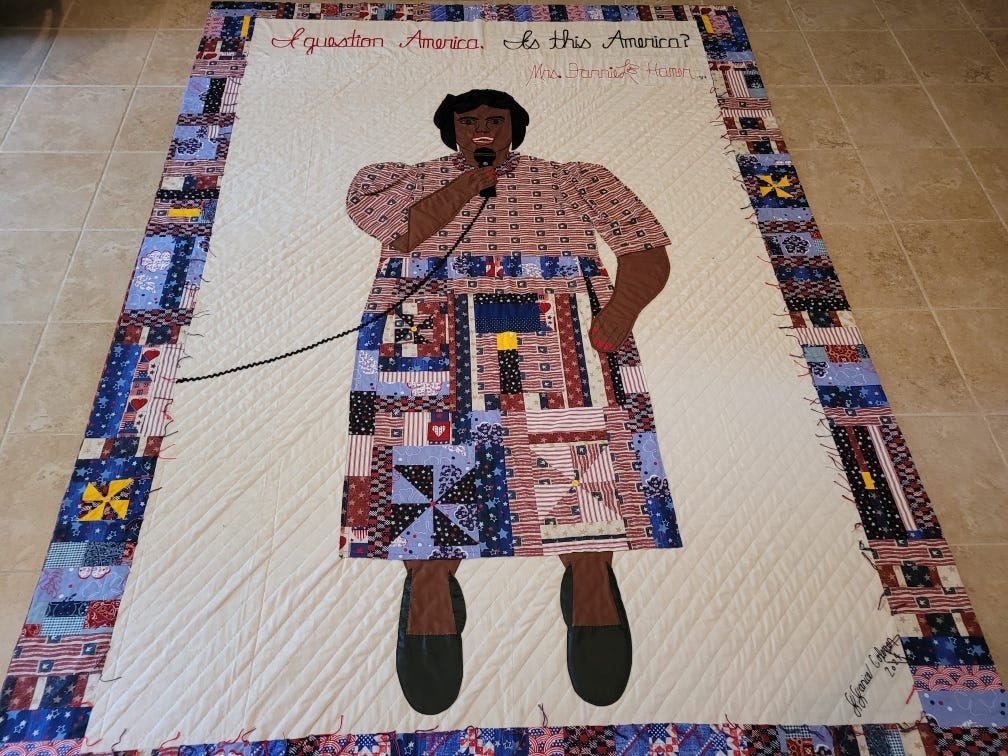
Is there a Mississippi change-maker who you think everyone needs to know about?
I think everyone needs to know about Mrs. Fannie Lou Hamer of Ruleville, and if I had the chance, I would go and tell her life story from the mountain. I would speak especially about three consecutive years in her life: 1962, 1963, and 1964. In these three years, Mrs. Hamer left behind her employment as a sharecropper in Ruleville and joined the Civil Rights Movement as a voting rights advocate; endured a vicious beating in the Winona jail because of her activism; and gained national powerhouse status for her activism when she went before the Credentials Committee at the Democratic National Convention in Atlantic City, New Jersey, and testified about black oppression in her hometown and elsewhere. Oh . . . but I am doing my part to broadcast Mrs. Hamer’s life story. Last year in August, I put a life-sized image of Mrs. Hamer on a quilt that commemorates the 60th anniversary of her Atlantic City, New Jersey, speech. This quilt has been and will continue to be a part of my shout-out from the mountain about the life of Mrs. Hamer.
I think everyone needs to know about Mrs. Fannie Lou Hamer of Ruleville, and if I had the chance, I would go and tell her life story from the mountain.
If you had one billion dollars to invest in Mississippi, how would you spend your money?
Sometimes a question like this prompts a response that is based on a pressing need of the moment or rather a frustration because a certain need of the moment has gone unmet for so long. This is the case here. If I had a billion dollars to invest in Mississippi, I would ensure that each tri-county area had a state-of-the-art cinema that would attract movies such as the currently showing Sinners, Paddington in Peru, Captain America: Brave New World, and Mickey 17. Many Mississippi residents either won’t see these movies, or they will have to travel great distances to see them because theaters in this state are so few and far between.
Additionally, I would set some funds aside for solving some of the state’s perennial problems such as high rates of illiteracy, food insecurities, inadequate health care facilities, and substandard housing. I would keep in mind, though, that as soon as I spend as little as one-hundred dollars, I would no longer have one billion, so I would invest wisely in revenue-generating enterprises so that I, along with my readiness teams, could assist in times of natural disasters such as a Hurricane Katrina, a Covid-19 pandemic, or another great flood. These things have happened before in the Great State of Mississippi; they will happen again.
Who or what do you want to shamelessly promote?
Having grown up on the family farm, I unapologetically promote the cotton sack. The cotton sack was the first bag that I ever carried—or rather dragged. Before I ever carried a book satchel, pocketbook, or purse, I sported a cotton sack. As a quilter, I sometimes like to recreate objects from my environment, and this venerable bag, the cotton sack, is the only farm implement that is a textile and therefore the only one that I can recreate with fabrics. So many people denigrate the cotton sack, especially African Americans who were formerly sharecroppers; they speak of it as an odious thing. But in my sewing, I elevate it to what John Keats had in mind when he said, “A thing of beauty is a joy forever.” My cotton sacks highlight traditional American quilt patterns such as the pinwheel, the log cabin, and the nine-patch, and I sometimes accentuate them with colorful buttons and pockets. My cotton sacks, though, do not go to the fields; they go to colleges and conferences, churches and community centers, and to galleries and museums to enlighten others on the virtues of the bag.
In the year that Mrs. Fannie Lou Hamer left behind the fields of Ruleville to become a voting rights advocate, that the writer William Faulkner died in Byhalia, that James Meredith integrated the University of Mississippi, Dr. J. Janice Coleman was born just before the close. That was 1962. In 1980 she graduated from Mound Bayou High School and embarked upon her college career at Alcorn State University where she earned a bachelor’s degree in English. Since that time, she has never left “the academy.” She earned a master’s degree in popular culture from Bowling Green State University and a doctorate in English from the University of Mississippi. She has spent most of her time in higher education as an English Professor at Alcorn State. Because she grew up doing fieldwork on her family farm in Mound Bayou, some of her students and colleagues have wondered how she became so entrenched in university life. To demystify how she became a fixture in the academy, Dr. Coleman says that books and schoolwork intervened in her life. “Books broadened my mind and took me places that I would not have gone otherwise. They were my window to the wider world. They let me know what was beyond the flat land of the Mississippi Delta, where the hills and mountains were and what was hiding behind the distant trees in my environment.
Dr. Coleman is an avid seamstress or quilter, yet she never completely disengages from university life. Instead, she sometimes weaves narratives of the lives of her family members and others into her quilts and cotton sacks, among other items which are featured in her online sewn arts museum: the Mississippi Delta Shotgun Sewn Arts Museum.
As a quilter, Dr. Coleman feels that she has reached the pinnacle of her success for two reasons. For more than six months between mid-November of last year and mid-May of this year, the Mississippi Museum of Art showcased her Beloved Quilt, based on Toni Morrison’s novel Beloved in its exhibit, Of Salt and Spirit: Black Quilters in the American South. Then, in January and February of this year, Mississippi State University invited her to exhibit her cotton sack line titled The Cotton Sack: Reimagined, Repurposed, and Revolutionized in the Cullis Wade Depot Art Gallery. “I am always grateful,” Dr. Coleman says, “when others acknowledge me as a true artist with a unique area of specialization. As one of my students once asked, ‘Why on earth would you make a cotton sack?’ Having others embrace my work so warmly is still taking some getting used to.”
One year ago:
Mississippi Native: Tonja Murphy
"I've cultivated community in Mississippi by discovering who I am, growing where I am, and encouraging others to do the same."
Two years ago:
Mississippi Native: 5th Child
"Living in Mississippi has given me a chip on my shoulder and made me very defensive of underestimated populations."
Talking Mississippi with Marshall Ramsey
Rooted Magazine's Editor-in Chief Lauren Rhoades talks about starting a Substack that aims to correct misconceptions about Mississippi and the people who call this state home.




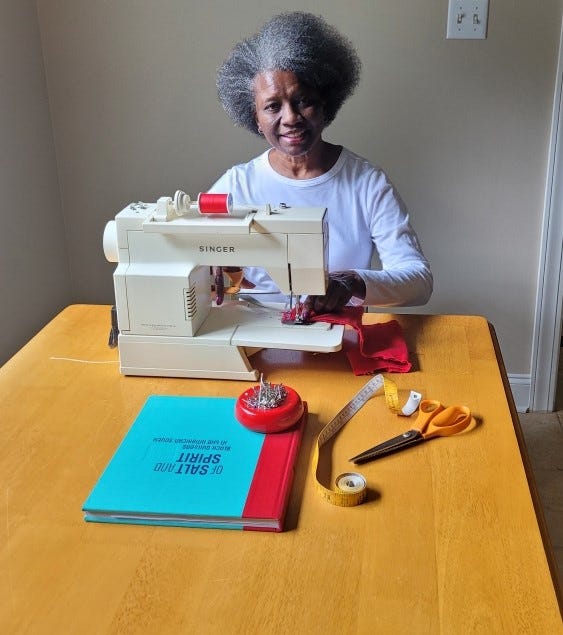
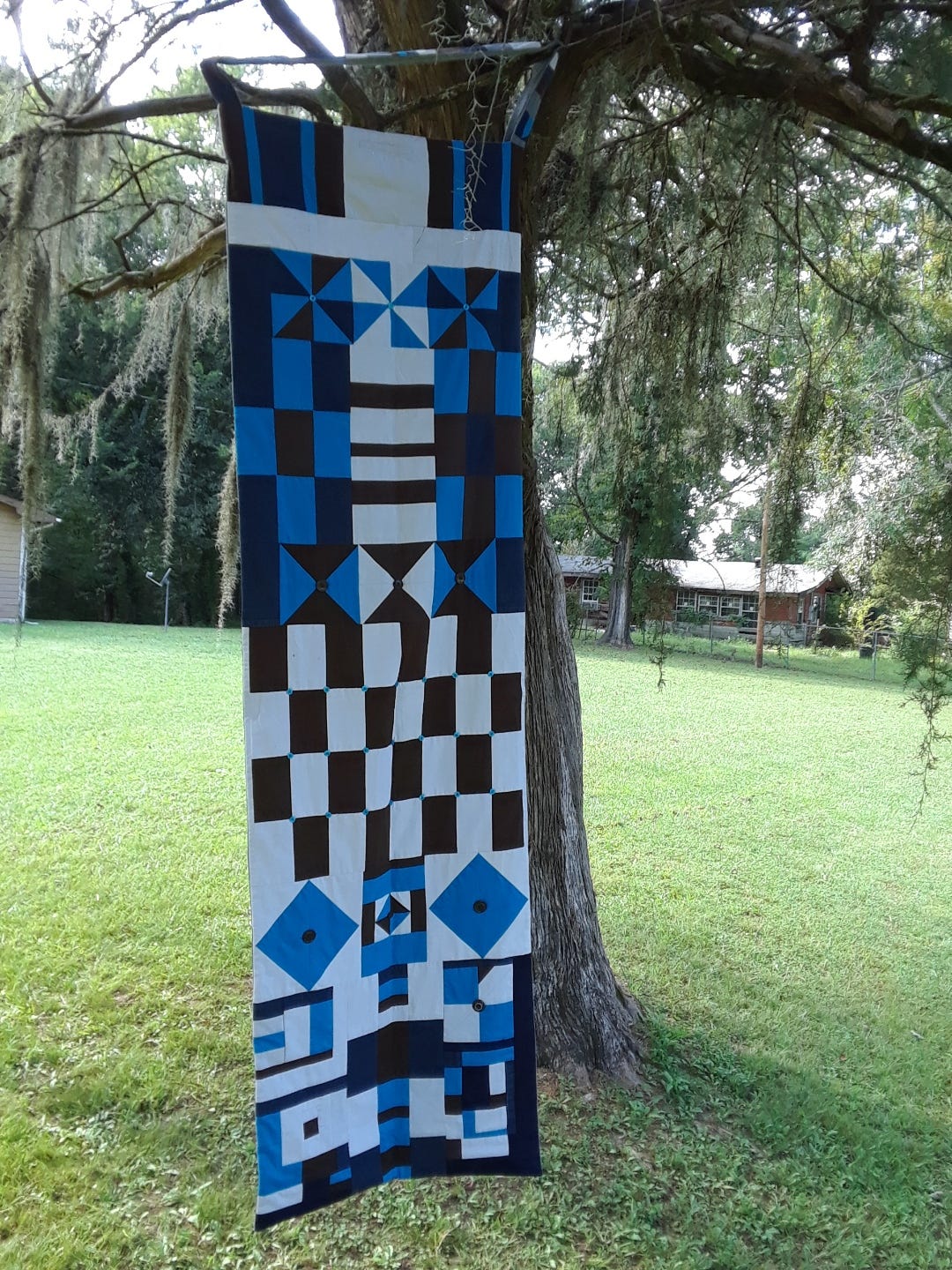
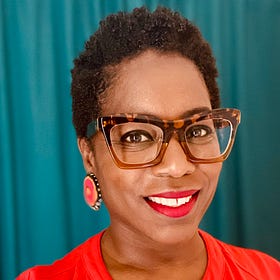

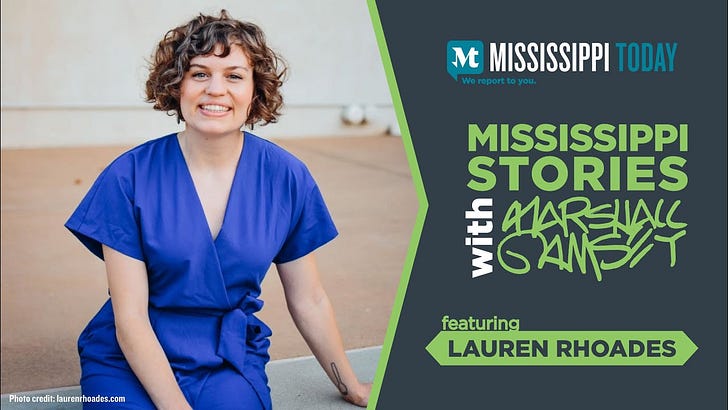
Dr. Coleman is a community artist and treasure whose shine illuminates the best of humanity, and, of course, bluespeople like her are the best of humanity.
I really loved Dr. Coleman's definition of home as "a place of memory, a place where I can constantly tell or retell stories without having to provide much background information because everyone else already knows some parts of the same stories." Her beautiful quilts are a form of story-telling too!